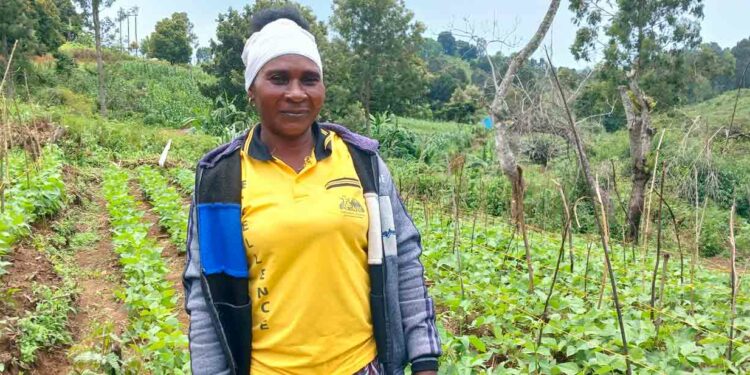
In a remote corner of the Mvomero district,a group of women farmers is transforming not only their own lives but also their entire community. The Kibuka Women’s Cooperative,led by Molissia Mbiki,has taken a major step toward agricultural modernization and improved product marketing—proving that women’s empowerment can be a driving force behind rural development. For years,these women faced serious challenges. Their crop yields were low,and pests—especially pod borers—devastated their harvests. On top of that,market access posed a major hurdle: high transportation costs and dependence on middlemen severely cut into their profits. “The loans we took out just to transport our goods nearly ruined us. It was hard to move forward,” says Molissia Mbiki,who has been leading the cooperative for the past five years.
Kenia: un negocio que florece de la tierra
A turning point came just over a year ago when the cooperative joined MVIWATA,a national network of small-scale farmers in Tanzania. With support from the Global Agriculture and Food Security Program (GAFSP) and the African Development Bank,the women of Kibuka received training in sustainable farming practices and agroecological techniques. They learned innovative methods for natural pest control,composting,and efficient crop spacing—allowing them to significantly boost production while protecting the environment.
“Today,we grow in a way that protects the land and improves the quality of what we produce,” explains one of the cooperative members.
But it wasn’t just the harvests that improved. The partnership also fostered a fairer,more direct local market—cutting out the middlemen who previously took a large share of their earnings. Now,the women sell their fruits and vegetables directly,creating better opportunities especially for young farmers seeking growth and success. Philip Boahen,GAFSP coordinator at the African Development Bank,highlights the importance of the initiative: “Kibuka is a clear example of resilience and grassroots leadership driving rural development from the bottom up.”
This progress is part of a broader effort that began in 2021 with the Baridi Sokoni project,aimed at mitigating the economic impacts of the COVID-19 pandemic on local farmers. In 2024,the program received an additional $2.85 million in funding to expand its reach and strengthen the productive and commercial capacities of rural communities.
MVIWATA,the network supporting the cooperative,offers more than just technical training. Its holistic approach includes access to financing,agricultural inputs,and cooperative governance—built on principles of gender inclusion and environmental sustainability. This model empowers those who work the land daily,ensuring that development benefits reach rural communities directly.
In Kibuka,the transformation is tangible. More than just a change in farming practices,these women are planting seeds of hope and paving the way for a more prosperous future—not only for themselves,but for their entire community.
United News - unews.co.za